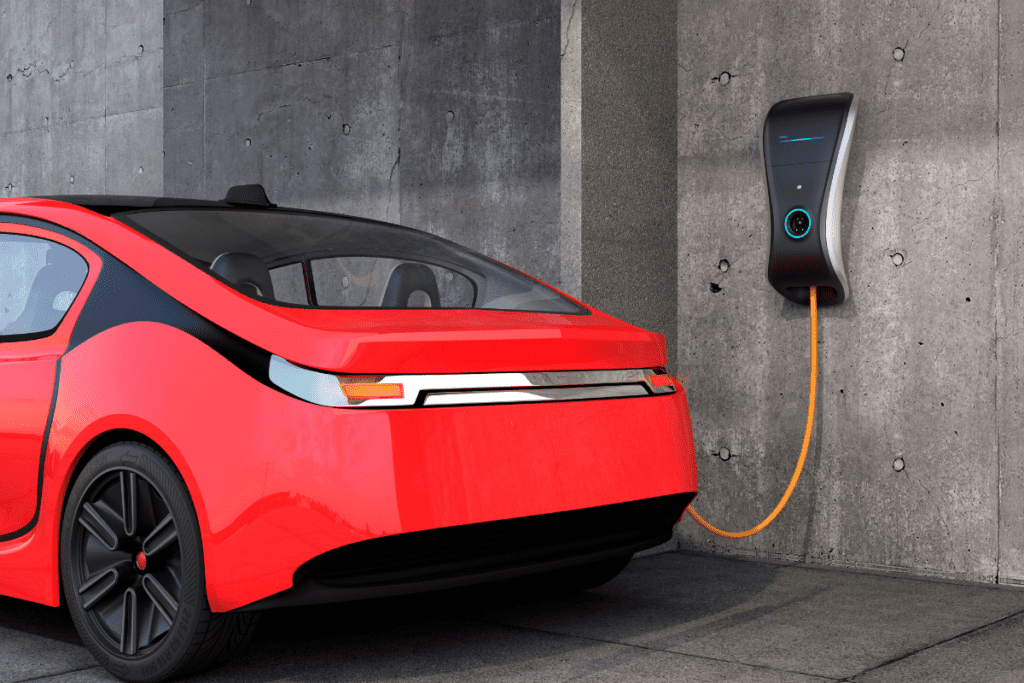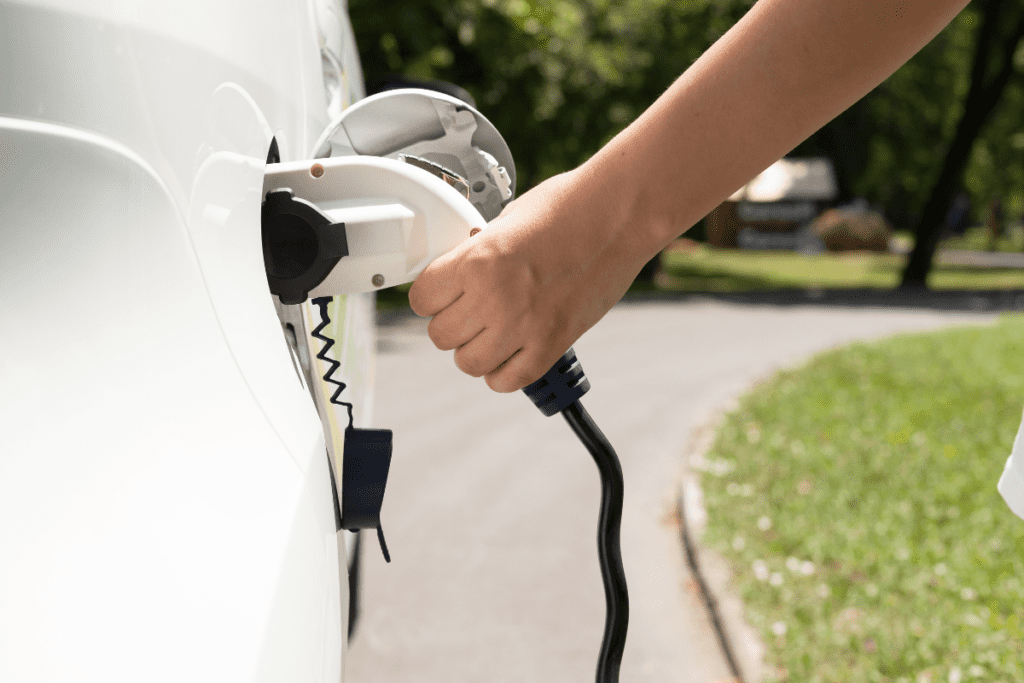Contents
Electric vehicles become more popular with every passing year. There are a number of reasons for this, including a growing consensus around the importance of environmental stewardship. Advances in electric vehicles ensure that these fuel-efficient cars are just as comfortable and reliable as their gas-powered counterparts. And of course, there’s also the issue of high gas prices, making gas-free vehicles infinitely appealing.
As electric cars become more ubiquitous, you can anticipate seeing more of them in your homeowners association (HOA). That raises the question: Should your HOA offer its residents a charging station? And do you need any other policies in place regarding electricity usage?
These are critical questions for any HOA Board of Directors to take up. In fact, we recommend discussing electric vehicle charging policies with your management company. If you happen to be in the Carolinas, contact Kuester Management Group. We’re proud to offer HOA management in Huntersville NC, Charlotte NC, Myrtle Beach SC, and HOA Management in Fort Mill SC.
In the meantime, here are some general guidelines that might help you think about addressing electric car owners in your community.

Developing an Electric Vehicle Charging Policy
The reality is, as electric vehicles become more and more popular, your HOA is likely to get a request to install a charging station. Whether this request comes sooner or later, you should be ready to answer.
Certainly, putting a charging area somewhere in your community can be a helpful amenity, providing convenience for electric vehicle owners. But as with everything else in the HOA, your charging area should come with rules and policies to govern its use.
The specifics of the policy may vary from one HOA to the next, but generally your policy will need to cover three basic things:
- How will homeowners pay for their electricity usage?
- By what process can homeowners apply to have their own, personal charging unit installed, perhaps near their assigned parking space?
- What will be the basic schedule for using the shared charging station?
Putting a clear policy in place not only provides homeowners with some guidance for navigating these important questions, but it also protects your association from being inundated with questions and requests.
Checking the HOA Governing Documents
As with any other HOA endeavor, the first step is always to see what the community’s governing documents say. In newer communities, especially in states that have more widespread EV adoption, the governing documents may already contain some direction about charging areas. In older communities with outdated governing documents, however, you’re unlikely to find any clear vehicle policies.
Even so, the governing documents may present some assistance, albeit more obliquely. For example, even in older communities the governing documents may include guidelines about modifying the existing structures of a home (e.g., through adherence to the correct architectural standards), or about adding new structures to the community’s common areas.
This last point is only applicable if the charging unit is, in fact, being installed in a true common area. If the unit is being installed on a parking spot that is privately owned by an association member, that’s a different matter.

Paying for the Charging Station
Naturally, one of your top questions will be how you’re going to pay for an EV charging station. Keep in mind that a single station can cost anywhere from $900 to $4,000, with the average cost falling somewhere around $2,000. That’s a decent chunk of change, especially if you plan to install multiple stations.
If your HOA pays for the charging station, that means the Association retains full control over it, and can better regulate use. It also means you can more readily use the charging station as a way to entice potential buyers.
Homeowners will be concerned about the charging station increasing their electric bills. Some of the more advanced charging units come with software that can keep track of which homeowners use the station and when, allowing you to bill them without passing along any additional costs to homeowners with traditional vehicles.
There are also costs related to maintenance of the charging station. You’ll likely have little choice but to spread these costs among all homeowners, including it as part of their regular dues.
Keep in mind that some electric vehicle service providers will install and maintain common/shared charging stations for a discounted price, sometimes even for free. Your HOA management company may be able to recommend such a provider in your area.
Letting Homeowners Install Their Own Stations
In lieu of installing a shared charging station, you may decide to simply let homeowners install their own units. Note that in some states, the law upholds homeowners’ rights to install their own charging unit, which they would privately own.
Even so, it’s reasonable to ask homeowners to adhere to the same guidelines that govern all other exterior renovations within your community. This means that any plans for a charging station would need to go through the Architecture Review Committee.
This is usually the best option if there are only one or two EV owners in your community, and/or if your HOA is wary about the expensive nature of installing a common charging station.
Making a Schedule
A final concern is developing the schedule for who gets to use the shared charging station, and when. Consider: If you have five owners who have EVs but only one charging station, you’ll need some way of determining who gets to charge their car first.
Most associations use a first-come, first-serve basis. This usually works well, assuming you make this policy abundantly clear to all homeowners. Alternatively, you might consider adopting a reservation system, which can be a little laborious but ultimately helps minimize disputes.
If you live in a community where EVs are quite common, of course, you probably need more than just a single station. Trying to get away with just one option can be a recipe for frustration.
Providing for Your Homeowners
The bottom line? To keep up with the times, and to ensure homeowners have the perks and amenities they desire, you may wish to consider adding charging areas for electric cars. Talk to your management company if you have any questions related to policy, financing, scheduling, insurance policy implications, or beyond.

Frequently Asked Questions
Can my house handle charging an electric car?
Most modern homes are fully capable of charging an electric car, so long as the appropriate type of charging station is installed.
Is it legal to charge an electric car on the street?
While this can vary depending on your municipality, the general rule of thumb is yes.
Do you need planning permission for an electric car charging point building?
In most areas, the answer is yes. Be sure you double-check local codes.

